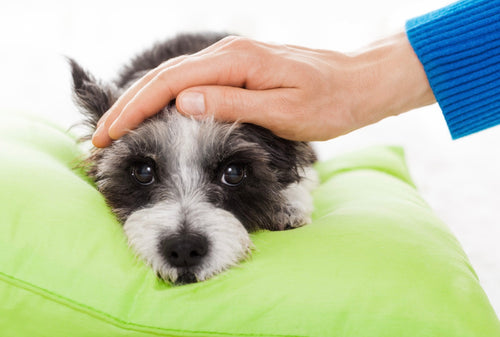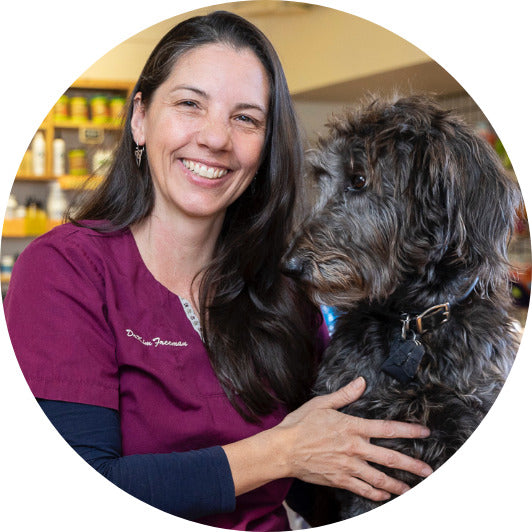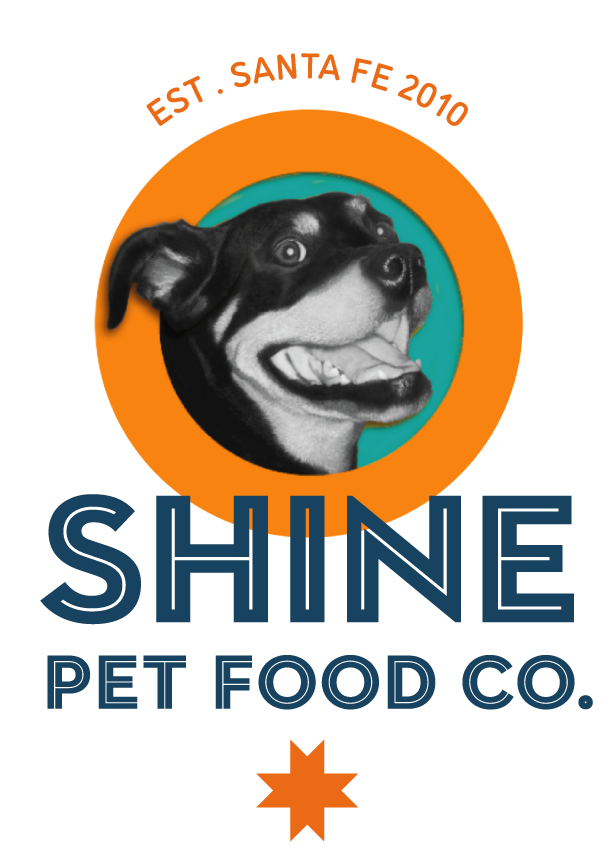With advances in veterinary medicine and pets becoming part of the family, we see more dogs living longer. That good news, unfortunately, has a downside: Cancer is becoming common in their lives. The causes are similar to those in people—carcinogen exposure, secondhand smoke, genetics, UV light exposure, and obesity; sometimes it’s anybody’s guess why it occurs.
Almost inevitably, a cancer diagnosis for your pup is stressful and confusing. Here at Shine Pet Food, we would like to share some basic diet information that applies to all canine cancer situations, and may possibly help your dog. With any change in food or supplements, especially if he or she is undergoing treatment, make sure to consult with your veterinarian.
How Does Diet Affect Cancer?
Tumor cells love carbohydrates. High levels of carbohydrates in a dog's food will actually feed the tumor and starve the patient! Research suggests that pups with cancer should eat a nutrient profile with no more than 25% carbohydrate on a dry matter (DM) basis. Unfortunately, the majority of adult dry dog food formulations have much more than that.
On the other hand, cancer cells have a difficult time using fat as an energy source. High levels of omega-3 fatty acids may even have an anti-tumor effect. While additional research is needed, it is recommended that canine cancer patients eat not only a low-carbohydrate diet, but one with 25-40% DM fat. As for protein, it’s critical to maintain lean body mass. Dogs with cancer should eat more protein than healthy dogs, but only if the liver and kidneys are functioning normally; the current protein recommendation is 30-40% DM fat.
Dogs with hormonally-influenced cancers such as breast, lung, bone, prostate, testicular, and thyroid, may benefit the most by reducing carbohydrates in the diet, according to the general consensus. But for all cancers, it’s good to aim for a higher caloric content than normal. If the dog will eat only a small amount, it is important that the food contains as many calories as possible. Since patients can often lose weight and muscle, it is important to monitor this and make changes accordingly.
What Can I Do for My Dog?
In general, a fresh, gently cooked, low-carbohydrate diet is appropriate for your dog when diagnosed with cancer. If a more extreme “keto” type diet (very low-carbohydrate, high protein and fat) is suggested, based on your pet’s particular condition or type of cancer, it’s important to make the switch slowly to avoid gastrointestinal upset. These diets take some adjusting to. If your pup has loose stools or vomiting, it’s a sign to slow down the transition and to keep monitoring the response. In many cases, it is helpful to feed the keto-type diet before, and/or during, treatment, but once that’s complete, transition to a fresh, maintenance diet that is well-balanced.
Shine Pet Food offers a Cancer Support recipe that is a keto-type diet designed to support dogs being treated for cancer and dogs with blood sugar or weight issues. It is based on the Traditional Chinese Veterinary Medicine (TCVM) principles of cooling the body by supporting yin, reducing phlegm and “dampness,” and clearing stagnation. The top ingredients have been chosen for their powerful properties in TCVM. Mushrooms, for example, along with pork and barley, tonify the yin and increase qi (life force energy). Horseradish and barley drain unhealthy dampness. Ginger reduces nausea and L-glutamine helps the gut recover from cancer medications. Highly refined omega-3 triglyceride-form fish oil lowers inflammation and promotes healing of damaged tissues. As always, it is best to consult with your veterinarian and we welcome questions regarding the formula.





